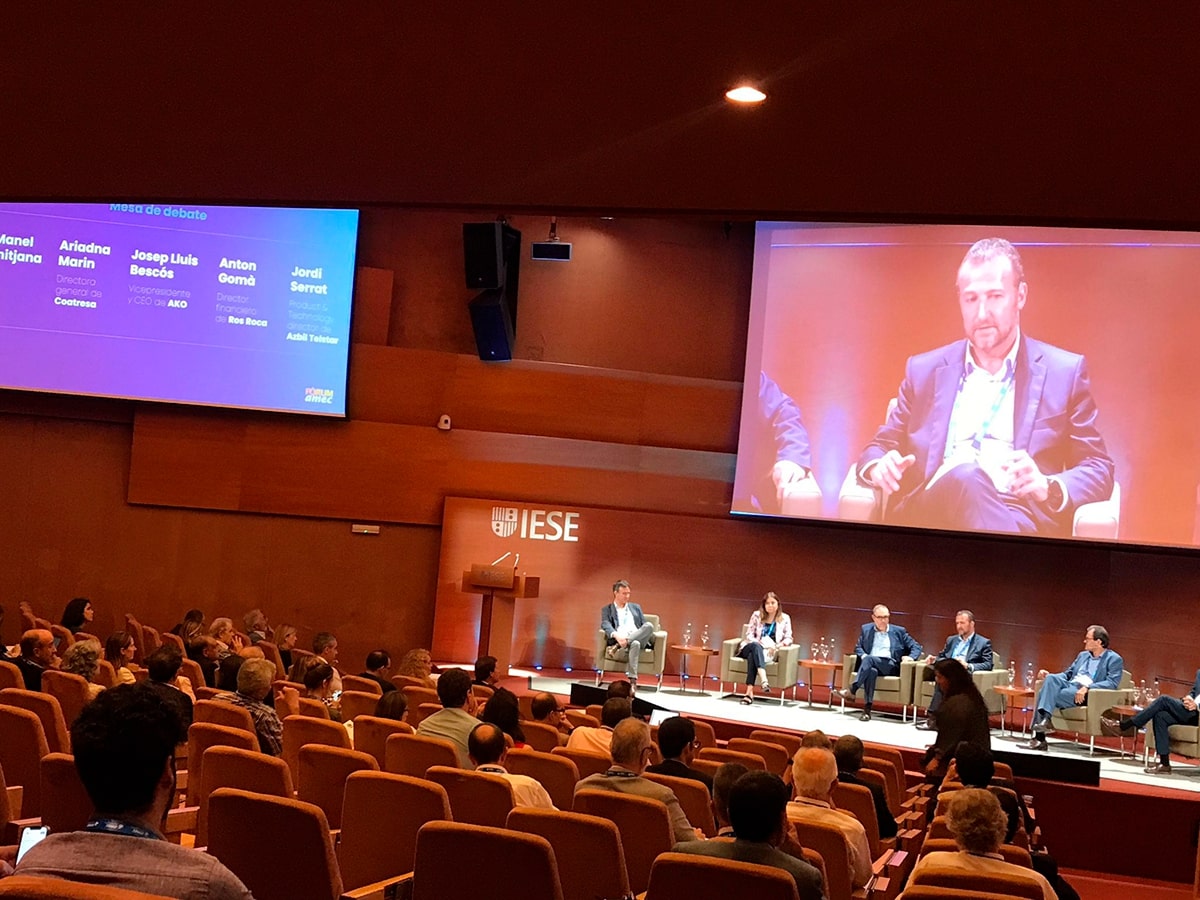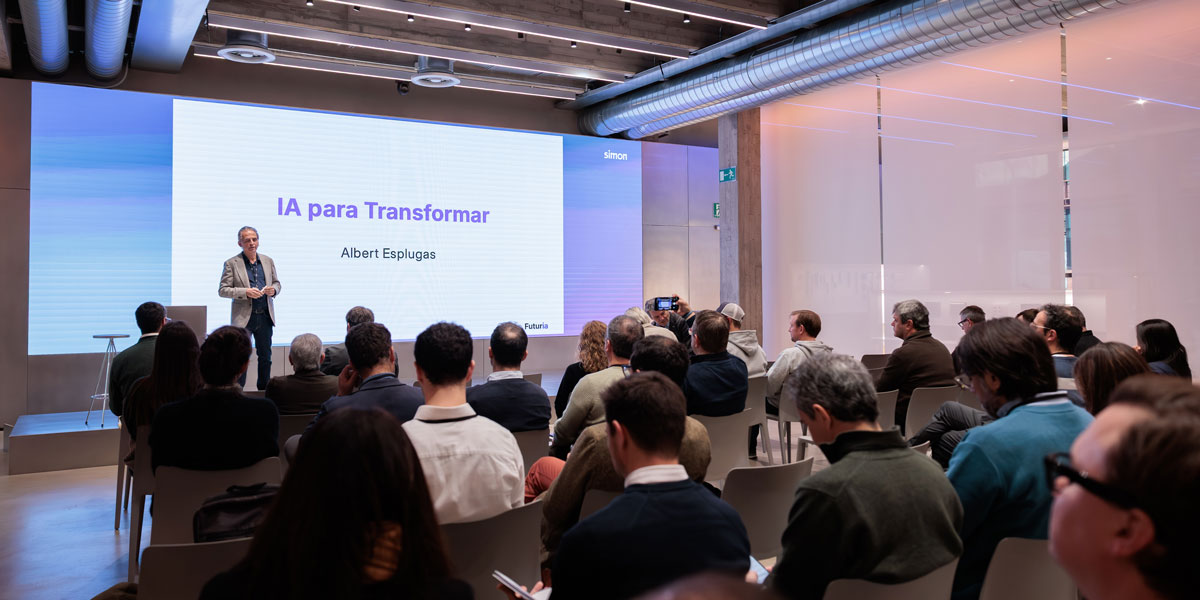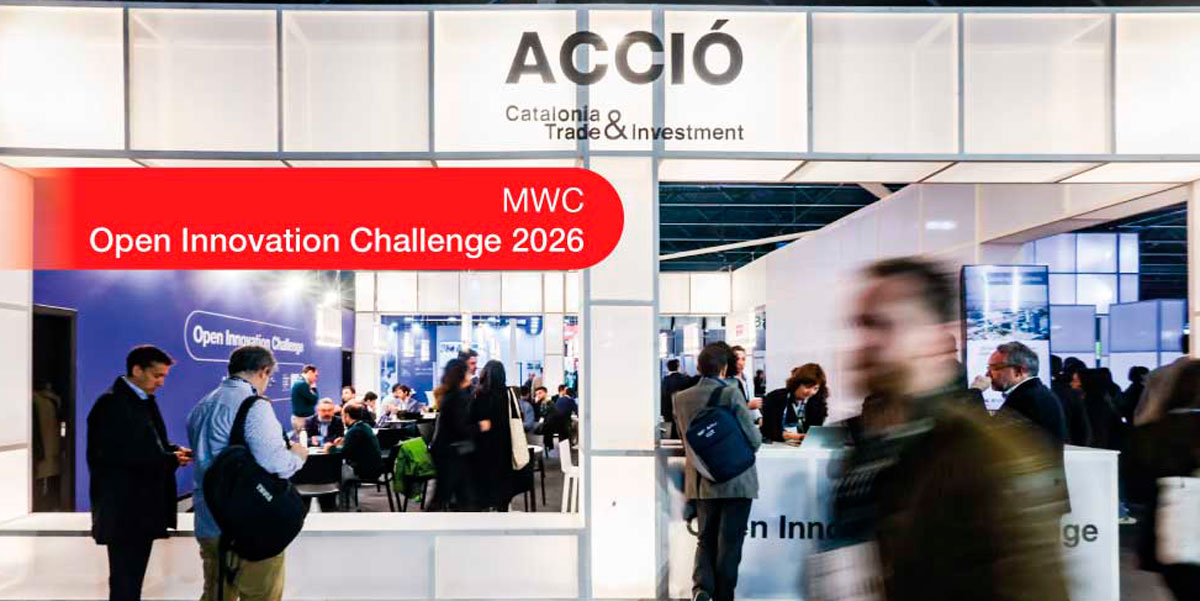Innovate to Transform: Catalonia’s Industry Facing the Challenges of the Future

A reflection on how open innovation, digitalization, and sustainability can strengthen Catalonia’s industrial competitiveness and future.
What does Catalan industry need? This is the question raised by the study conducted by the Observatori de la Indústria of the Government of Catalonia and Eurecat, with the participation of more than 60 experts from the business world, public institutions, and academia.
The document, which brings together around sixty articles grouped into seven major areas, offers a multifaceted view of the current industrial landscape and provides ideas to guide the future National Pact for Industry 2026–2030. These areas address key issues for the country’s economic development:
– an industry with technologically advanced products and processes,
– a more sustainable industry,
– an industry with people at its core,
– an industry with adequate support infrastructures,
– an industry with renewed classic competitiveness factors,
– an industry with a diversified economy,
– an industry with a society and administration close to business.
At INDPULS, we fully share this vision and feel represented in many of the reflections it presents. David Tapias, Director of Innovation at FLUIDRA, and Marc Albajar, Inquide General Manager and Lean & Ind. 4.0 Director at the same company, a member of INDPULS, have participated in the working group for Axis 1 on digitalization and innovation.
In this article, we want to gather some of the key ideas highlighted by the study -especially those related to innovation, collaboration, artificial intelligence, sustainability, and industrial strategy– and reflect on how they can inspire the future of Catalan industry.
1. Technology and added value as a national strategy
The report is clear: a developed economy is one capable of creating sophisticated products and advanced industrial processes based on knowledge, technology, and talent.
This type of industry generates higher productivity and stable employment. Catalan companies must move towards models of added value, focusing on manufacturing unique, complex, and technologically demanding products where design, quality, and innovation make the difference.
As several experts remind us, innovation is not a one-off action but a systemic strategy. It requires taking risks, exploring new markets, and adopting emerging technologies such as artificial intelligence, robotics, digital twins, additive manufacturing, or augmented reality.
This approach is essential for progressing towards Industry 4.0 and 5.0, where technology works in service of people and sustainability.
2. Innovation as a collaborative process
Companies that innovate consistently do not do it alone. They collaborate.
In this context, programs driven by INDPULS demonstrate the value of open innovation as a means to solve real industrial challenges through collaboration.
The ability to connect technological knowledge with industrial needs is what enables progress towards smarter, more flexible, and more competitive models. The study highlights the importance of research, technology transfer, and innovation protection as key levers to maintain the competitive advantage of the industrial ecosystem.
3. Data as the new raw material
The digital transformation of industry is not just about adopting technology but about learning to manage and leverage data. Data-driven companies improve their productivity and innovative capacity. Knowing how to capture, analyze, and monetize data enables the creation of new business models, the anticipation of needs, and more efficient decision-making.
This strategic use of data must be accompanied by a digital culture that permeates the entire organization, from management to the production floor.
4. Sustainability as a driver of competitiveness
The other major future axis identified by the study is sustainability. Catalan industry faces the challenge of advancing toward decarbonization without losing competitiveness, and INDPULS already has initiatives underway in this regard. Europe has set the goal of achieving a net-zero-emission industry by 2050, and Catalonia must position itself on this path through innovation and collaboration.
The study underlines the need for an energy transition that guarantees access to clean, affordable, and stable energy, essential for maintaining industrial competitiveness.
It also stresses the importance of fostering a circular economy, in which material reuse and recycling, eco-design, and reduced dependence on critical raw materials become structural elements of the production model. In addition, it highlights water management as a strategic factor for industrial competitiveness.
As the study notes, sustainability is not only an ethical or environmental obligation but also an opportunity for leadership. Catalonia can become a benchmark in clean technologies, sustainable materials, and circular processes, combining innovation, smart regulation, and economic viability.
5. A shared strategy for the industrial future
Transforming Catalonia’s industry requires a shared strategy, capable of connecting all stakeholders: companies, administrations, technology centers, and civil society.
This strategy should be built around three main axes:
- Technological sophistication and intelligent digitalization.
- Sustainability and green transition.
- Collaboration and open innovation as a model for impact.
The coming years, marked by the National Pact for Industry 2026–2030, will be decisive in consolidating this vision. At INDPULS, we want to contribute actively by facilitating the connection between innovation, talent, and industry, with a clear commitment to collaboration.





